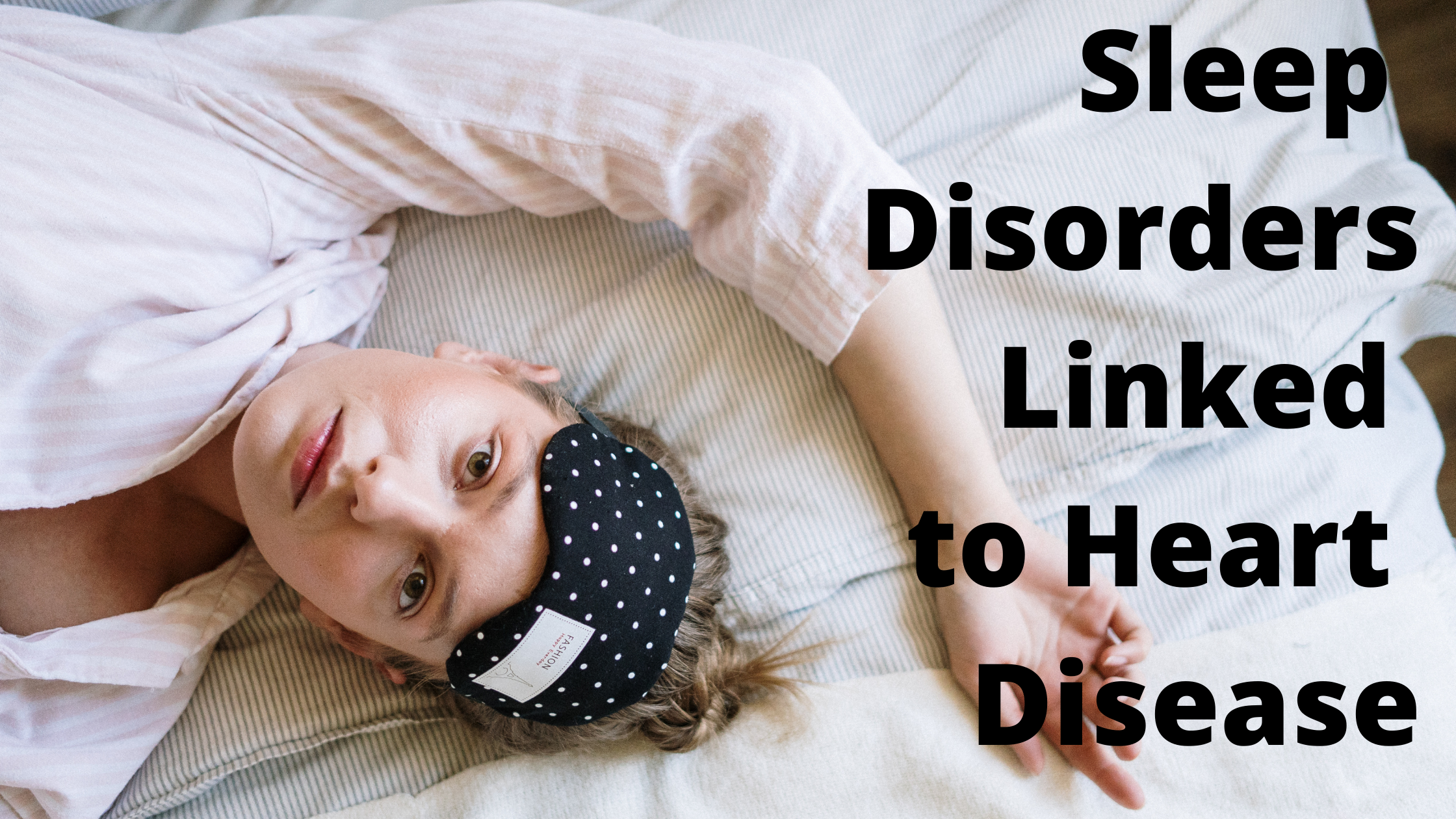
Sleep disorders have one thing in common, they interrupt sleep. Therefore, it's important that if you have a sleep disorder, you find the problem before the accumulation of interrupted sleep leads to chronic sleep deprivation. Sleep deprivation is more than just being tired. It can negatively impact several organ systems, including your heart. Heart disease is the number one cause of death worldwide, so it's important to do everything possible to maintain its health - including getting enough sleep. Continue reading to find out how common sleeping disorders can lead to cardiovascular disease!
How much sleep is recommended?
The CDC recommends at least 7 hours of sleep a night for adults. However a majority of Americans say they don't reach this value. This may be okay in the short-term, but the in the long-term, it can be problematic. Sleep deprivation is detrimental for health problems and can worsen some existing conditions.
There are some sleep disorders that make it impossible to get the recommended number of hours of sleep. These disorders can have serious consequences for you heart, so if you exhibit signs or symptoms of any of these, it's important to talk to your physician.
Sleep Apnea
Obstructive sleep apnea (OSA) is a disorder in which the muscles in the back of the throat relax, blocking the airway. This makes it very difficult, if not impossible, to breathe during sleep. Sensing this, your brain will wake you up so you can begin breathing again, and although you may not remember this apnea event, your sleep will suffer.
The next morning, you will work up with extreme daytime sleepiness which can impact your mood, energy, and other aspects of your personality. The most unfortunate part about sleep apnea is that most individuals don't know that they do it, so unless you have a partner informing you that you stop breathing throughout the night and then gasp as you begin breathing again, you may never know.
If you are diagnosed with OSA, fragmented sleep can cause multiple cardiovascular problems. Disturbed respiration also reduces the amount of oxygen in the blood which can worsen the impact that OSA has on the heart. Without oxygen, the heart and many other muscles can't do their jobs.
Insomnia
Insomnia is the inability to fall asleep. This can be due to primary insomnia, where the main problem is your inability to fall asleep, or secondary insomnia, where you can't sleep due to another problem. Insomnia can either be acute, short-term, or chronic, long-term, both of which can have significant impacts on your health and mood.
Insomnia causes insufficient sleep, and this can lead to elevated cardiovascular health risks. Your blood pressure normally drops during the night, and if you can't go to sleep, then this means you have elevated blood pressure for longer periods of time. Your heart rate also drops during the night, so without sleep, it stays faster than it should for longer periods of time. This is especially a problem if anxiety is causing your insomnia, which means your sympathetic nervous system is overactive.
If you suffer from insomnia, it's very important to get the sleep you need. Without it, you may struggle with plaque build up (atherosclerosis) among many other heart and health issues.
Restless Leg Syndrome
Restless Leg Syndrome (RLS) is a syndrome in which your legs are overly activated to the point where you feel as if a something is tingling, burning and irritating your legs. You will wake up in the middle of the night to move them and relieve this discomfort. However, every time you wake up, you are disturbing your sleep.
The exact association between RLS and heart disease is unknown, but it may be due to an abnormal activation of the cardiovascular system that happens with those conditions. This can lead to elevated and fluctuating heart rate and blood pressure, both of which are negative for the body long-term.
Circadian Rhythm Sleep Disorder
Circadian Rhythm Sleep disorder occurs when the person's internal clock is off with day and night. Our bodies can normally tell what time of day it is based on the light that enters our retinas. When it starts to get dark, our body starts winding down. When it's light, our body begins activating everything preparing for another day. Issues with receiving light, or living in areas where the 24-hour schedule is off can negatively affect these processes. This disorder has an increased risk for cardiovascular problems.
Also those who work during the night and sleep during the day have increased risk of hypertension, obesity, diabetes, and cardiac events like a stroke or heart attack.
These various sleep disorders can have serious ramifications on you heart health, so it's important you take them seriously. Missed sleep is not just "something to deal with" but can actually be a serious health issue that needs to be addressed. If you struggle with any of the above disorders, then please click the orange button to take a free online sleep test today.
Sources:
https://www.sleepfoundation.org/sleep-deprivation/how-sleep-deprivation-affects-your-heart
https://www.cdc.gov/bloodpressure/sleep.htm

